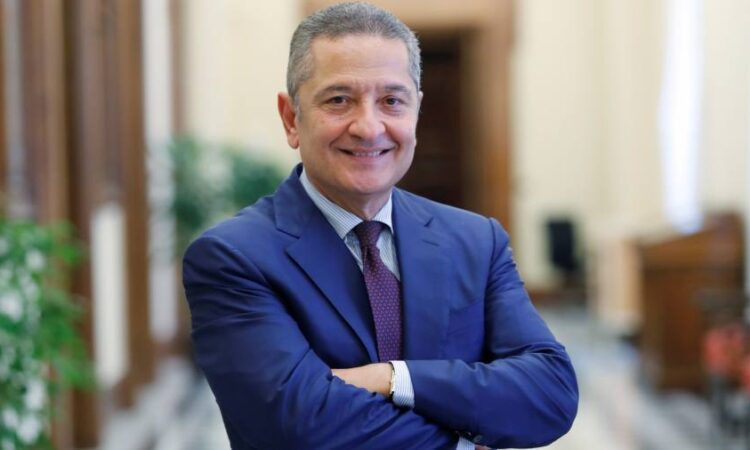
Receive free Central banks updates
We’ll send you a myFT Daily Digest email rounding up the latest Central banks news every morning.
Italy will appoint Fabio Panetta as the next governor of the central bank, opening up a vacancy on the European Central Bank’s executive board that could test prime minister Giorgia Meloni’s ability to choose his successor.
Rome is expected to announce its nomination to the ECB board to replace Panetta in the coming weeks, but it could face a challenge from one of the smaller eurozone countries that have never had a top executive at the Frankfurt-based institution.
Panetta, who joined the ECB board at the start of 2020 after a long career at the Banca d’Italia, was widely seen as the favourite to take over at Italy’s central bank from Ignazio Visco, whose second six-year term expires before the end of the year. Rome’s decision was confirmed by people briefed on the matter.
There is a convention that each of the eurozone’s four big economies is granted one seat on the ECB’s six-person executive board. But Spain went without a seat on the ECB board for six years until Luis de Guindos was made vice-president in 2016.
One person familiar with the matter said Meloni was likely to win enough support from other EU countries to secure the right to replace Panetta, but others said Italy could face a battle to choose his successor.
“The downside is that if Panetta resigns from the executive board of the ECB there is a clear risk that Italy will lose the representative in Frankfurt for at least a couple of years,” said Lorenzo Codogno, a former senior Italian treasury official and now a London-based consultant.
But Codogno said such a result “is not a dramatic setback”, as Italy would likely regain a representative on the board in a couple of years. He also noted that executive board members are supposed to think of the good of the eurozone as a whole — not just their country’s interests.
Another person said Panetta’s replacement should be a trained economist as he is one of only three out of six ECB executives with such expertise. There could also be pressure from the European parliament for a woman to be appointed to improve diversity on the governing council, the ECB’s main decision-making body where 24 out of 26 members are men. The parliament has to approve any appointment.
Meloni approached Panetta shortly after being elected as prime minister to see if he was interested in becoming finance minister in her government. But he turned her down, preferring to stay away from the limelight in central banking instead of in front-line politics.
Panetta has been overseeing the ECB’s work on the digital euro and his departure risks causing some disruption for one of the bank’s flagship projects, for which the EU is due to publish its draft legislation on Wednesday.
Visco has represented Italy on the ECB’s governing council, its main interest rate setting body, since he replaced Mario Draghi as Banca d’Italia governor at the height of the eurozone debt crisis in 2011.
During the subsequent banking crisis in Italy, Visco was criticised for failing to get to grips with the problems of struggling banks quickly. But he has been a consistent advocate of the supportive monetary policy that was pursued for much of the past decade by the ECB.
Codogno said Panetta would still carry plenty of clout at the ECB as the Bank of Italy governor, given his familiarity and experience at the ECB.
“He has good contacts and might be able to influence policy anyway,” Codogno said. “It is useful to have a senior person there — but it is not essential in my view.”





